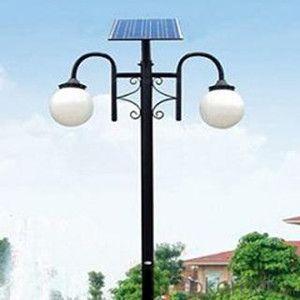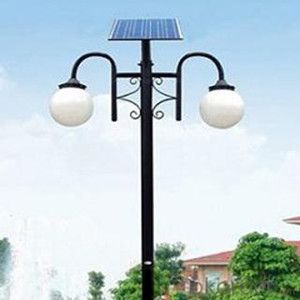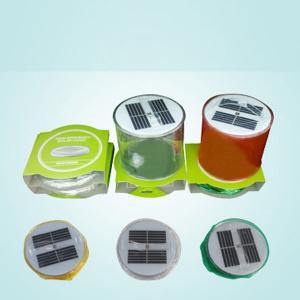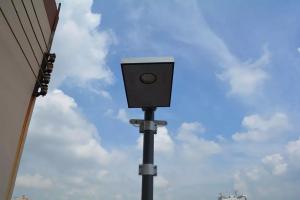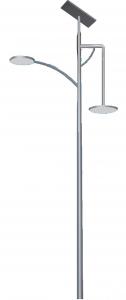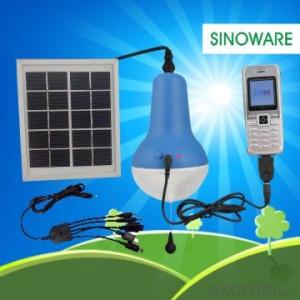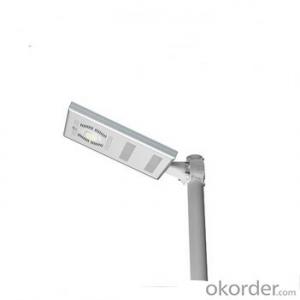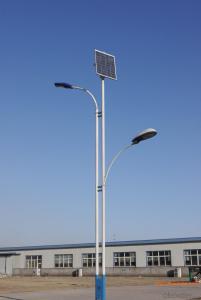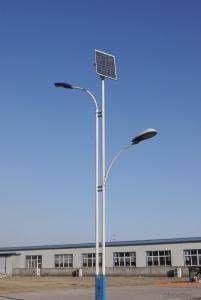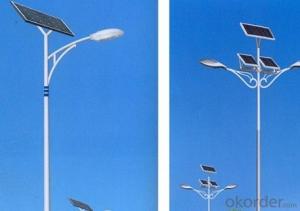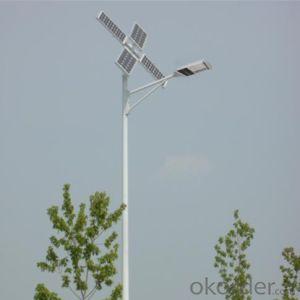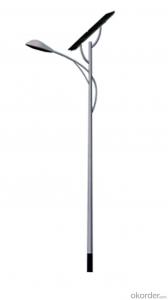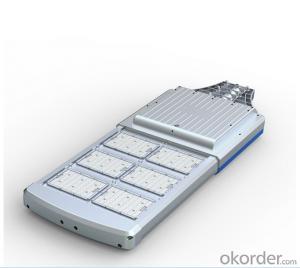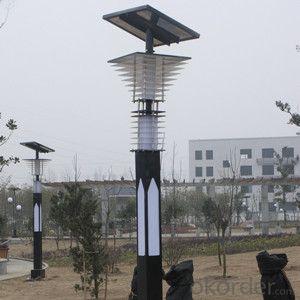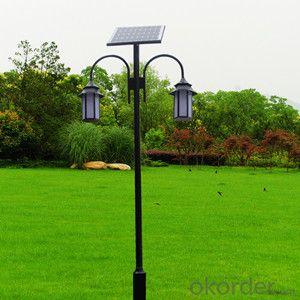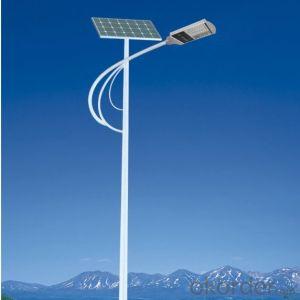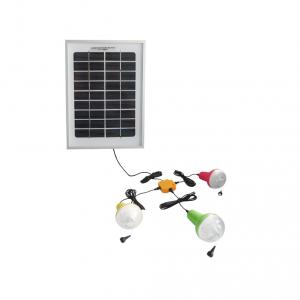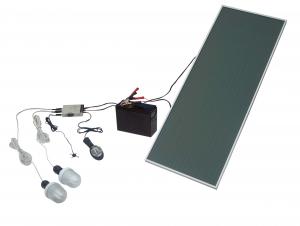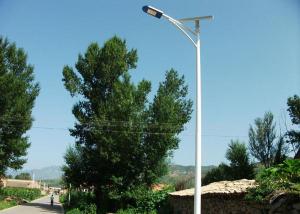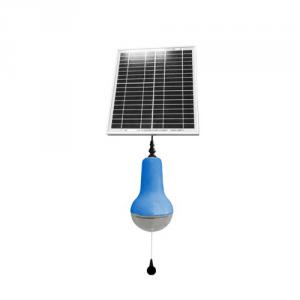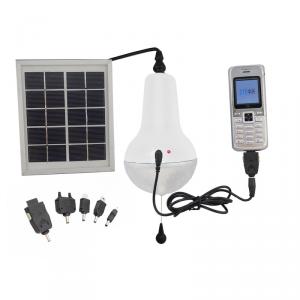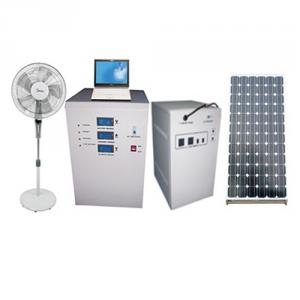Solar Light Post Home Depot LED Solar Street Lights JMTT-011
- Loading Port:
- Shanghai
- Payment Terms:
- TT OR LC
- Min Order Qty:
- 10 pc
- Supply Capability:
- 10000 pc/month
OKorder Service Pledge
Quality Product, Order Online Tracking, Timely Delivery
OKorder Financial Service
Credit Rating, Credit Services, Credit Purchasing
You Might Also Like
| No. | Model | Specification | Lifetime | Guarantee | Certificate |
| 1 | Pole | hot zinc-plated steel metallic paint, color could be customized , with all-stainless steel fasteners, 2.8-3.5m height | 20years | 10 years | CE |
| 2 | Lamp | LED ball lamp (color optional), 5W, 7W, 9W | 80000hrs | 5 years | CE. ROHS |
| 3 | Controller | Solar intelligent special controller, with light control switch | 3-5years | 3 years | CE. ROHS |
| 4 | Solar Panel | 20W ~ 60W imported poly-crystalline silicon solar cell module dedicated service life of 20 years | 20years | 5 years | TUV |
| 5 | Battery | 25AH ~ 70AH maintenance-free lead-acid battery, overcharge and over discharge protection, 3 years life. | 7-8years | 3 years | UL |
| 6 | Accessories | Panel bracket, base anchor bolts, cables, fasteners ect. | 10years | 3 years | CE |
| Please contact our sales for suitable system design! | |||||
- Q: Are solar lights suitable for agricultural greenhouses?
- Yes, solar lights are suitable for agricultural greenhouses. They provide a sustainable and cost-effective lighting solution, reducing reliance on grid electricity and saving energy costs. Solar lights can be installed easily in greenhouses, harnessing sunlight during the day and illuminating the plants during the night. This ensures optimum growth conditions and extends the growing season, benefiting agricultural operations.
- Q: Do solar lights have a built-in GPS tracking feature for location monitoring?
- No, solar lights do not typically have a built-in GPS tracking feature for location monitoring. Solar lights are designed to harness sunlight and convert it into electricity, which is then stored in a battery for later use. They are primarily used for outdoor lighting purposes and do not require any location monitoring or tracking capabilities.
- Q: Are there solar lights for basketball courts or tennis courts?
- Yes, there are solar lights available specifically designed for basketball courts and tennis courts. These solar-powered lights are a popular and environmentally friendly lighting solution for outdoor sports facilities, providing ample illumination for nighttime games or practice sessions.
- Q: Can solar lights be used for commercial purposes?
- Yes, solar lights can indeed be used for commercial purposes. In fact, they are increasingly being employed in various commercial settings such as parking lots, streets, buildings, and outdoor advertising. Solar lights offer numerous advantages for businesses, including cost savings through reduced energy bills, decreased maintenance requirements, and environmental sustainability. These lights harness solar energy during the day and use it to power the lights at night, making them an efficient and eco-friendly choice for commercial lighting needs.
- Q: Can solar lights be used for road safety or traffic control?
- Indeed, road safety and traffic control can be achieved by utilizing solar lights. These lights offer a sustainable and cost-effective method to enhance road visibility and ensure the safety of motorists, pedestrians, and cyclists. Installation of solar lights in various locations such as crosswalks, intersections, roundabouts, and construction zones is possible. Solar lights are equipped with photovoltaic panels that absorb sunlight during the day. This absorbed sunlight is converted into electricity and stored in batteries. The stored energy is then used to power the lights at night, providing continuous illumination. Since solar lights rely on solar power, there is no need for external power sources or wiring, making installation and maintenance hassle-free. The use of solar lights for road safety and traffic control brings several advantages. Firstly, these lights offer improved visibility, especially in areas with limited or no access to electricity. They can be strategically placed to mark hazardous areas, curves, or intersections, alerting drivers to potential dangers and reducing the risk of accidents. Moreover, solar lights can be programmed to flash or change colors, serving as warning signals for drivers. For example, in school zones, solar-powered flashing lights can indicate reduced speed limits during specific hours. Similarly, at pedestrian crosswalks, solar lights can flash when a pedestrian activates the crossing signal, notifying drivers to stop and yield. Another benefit of using solar lights for road safety is their ability to function independently during power outages or emergencies. Even during a blackout, solar lights continue to operate, ensuring critical areas remain illuminated and visible to drivers. Furthermore, solar lights contribute to environmental sustainability by reducing reliance on traditional grid electricity and minimizing carbon emissions. They align with global efforts to combat climate change and encourage sustainable development. In conclusion, solar lights are an efficient solution for road safety and traffic control. Their ability to harness solar energy, ease of installation, and low maintenance make them a practical and sustainable choice. By enhancing visibility, providing warning signals, and functioning independently during emergencies, solar lights contribute to creating safer roadways for everyone.
- Q: Are solar lights suitable for horse stables or barns?
- Yes, solar lights can be suitable for horse stables or barns. They offer several advantages over traditional electric lights. First, solar lights are energy-efficient and environmentally friendly as they rely on sunlight to generate power. This means you won't have to worry about increasing your electricity bill or dealing with complex wiring. Additionally, solar lights are easy to install and require minimal maintenance. They can be placed strategically to provide optimal lighting without causing any inconvenience to the horses. Moreover, solar lights are usually equipped with sensors that automatically turn on at dusk and off at dawn, providing a consistent and reliable source of light for the stables or barns. Overall, solar lights are a practical and cost-effective solution for illuminating horse stables or barns.
- Q: Do solar lights emit heat?
- No, solar lights do not emit heat as they convert sunlight into electricity and do not produce any heat as a byproduct.
- Q: Are there different colors available for solar lights?
- Yes, there are typically different colors available for solar lights. While the most common color for solar lights is white or a soft white/yellowish light, many manufacturers now offer a variety of colors to choose from. Some popular options include warm white, cool white, blue, green, red, and multi-color changing lights. These variations in color can add a decorative touch to your outdoor space and allow you to create different moods or themes depending on your preference.
- Q: Are solar lights compatible with voice control systems?
- Yes, solar lights can be compatible with voice control systems, provided they are equipped with the necessary technology, such as Wi-Fi connectivity or compatibility with smart home platforms like Amazon Alexa or Google Assistant. This allows users to control and adjust solar lights through voice commands, making them more convenient and accessible.
- Q: How do I choose the right solar panel size for my solar lights?
- When deciding on the appropriate size for your solar panels for solar lights, there are several factors to take into consideration. To begin with, it is important to assess the amount of sunlight your location receives. The efficiency of solar panels is directly linked to their ability to absorb sunlight. In areas with abundant sunlight throughout the day, a smaller solar panel size may be sufficient. Conversely, if your location experiences limited sunlight or frequent cloudy days, opting for a larger solar panel size is advisable to compensate for reduced sunlight absorption. Secondly, take into account the power requirements of your solar lights. Solar lights come in different wattages and power ratings. Determine the power consumption of your lights and match it with the appropriate solar panel size. It is critical to choose a solar panel that can generate enough power to meet the energy demands of your lights, particularly during periods of low sunlight or extended usage. Furthermore, consider the size and design of your solar lights. Some lights have built-in solar panels, while others have separate panels connected by wires. If your lights have built-in panels, the panel size cannot be adjusted. However, if you have separate panels, you have more flexibility in choosing the size that suits your needs. Lastly, take your budget into consideration. Larger solar panels generally come with a higher price tag than smaller ones. Finding a balance between the size of the panel and your budget is crucial. Assess your energy requirements and weigh the cost-effectiveness of different panel sizes. In conclusion, selecting the appropriate solar panel size for your solar lights involves considering factors such as sunlight availability, power requirements, the design of the lights, and your budget. By taking these factors into account, you can make an informed decision and ensure optimal performance of your solar lights.
Send your message to us
Solar Light Post Home Depot LED Solar Street Lights JMTT-011
- Loading Port:
- Shanghai
- Payment Terms:
- TT OR LC
- Min Order Qty:
- 10 pc
- Supply Capability:
- 10000 pc/month
OKorder Service Pledge
Quality Product, Order Online Tracking, Timely Delivery
OKorder Financial Service
Credit Rating, Credit Services, Credit Purchasing
Similar products
Hot products
Hot Searches
Related keywords
